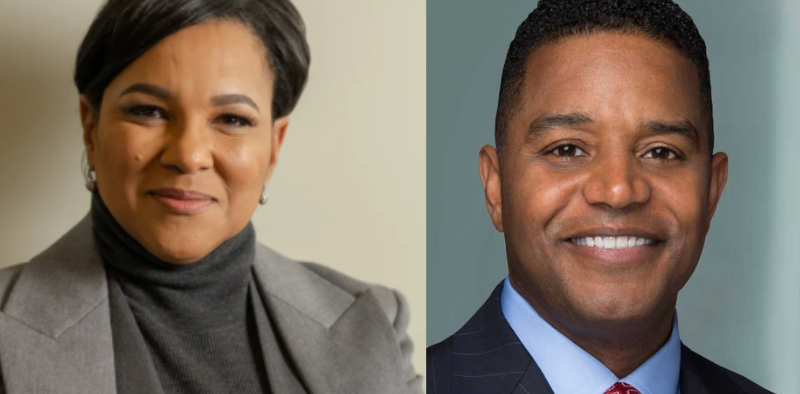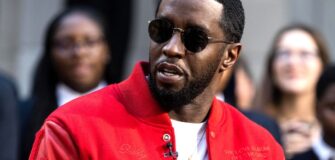Black CEOs on the Fortune 500 List
Share

The Fortune 500 has witnessed notable progress in Black leadership, with the number of Black CEOs reaching eight, marking a significant increase from previous years. However, this figure still only represents 1.6% of all Fortune 500 CEOs, a disproportionately low percentage compared to the Black population’s share of 14.4%.
In the summer of 2020, amidst widespread social justice protests following George Floyd’s murder, companies began pledging to enhance diversity in leadership roles. Fast forward to 2023, and the number of Black CEOs has doubled since then, with notable additions such as Calvin Butler Jr., Christopher Womack, and René Jones.
While there have been new entrants, there have also been exits, such as Robert Reffkin of Compass, highlighting the volatile nature of corporate leadership. Despite the progress, challenges persist, including gender diversity among Black CEOs and barriers to advancement faced by Black professionals.
Efforts to address these challenges include sponsorship programs, leadership development initiatives, and challenging traditional assumptions about leadership. Organizations must remain committed to diversity, equity, and inclusion efforts despite potential pushback, as investing in diverse talent pipelines is crucial for long-term success.
It is worthy of note that this record-high number is worth celebrating, as it is an improvement on previous years, but the percentage growth – when considered, leaves a bitter pill in the mouth. Black CEOs only make up 1.6% of all Fortune 500 CEOs – this is far below the labour force participation rate of Black people living in the United States of America alone.
Speaking on the development, Laura Morgan Roberts, an associate professor of business administration at the University of Virginia’s Darden School of Business says; “There are a plethora of talented, qualified, extraordinary leaders who happen to be Black. It’s never a surprise when they advance to the C-suite, or even to the CEO position.
“Black CEOs are more educated than their white peers yet face higher expectations to “prove” their qualifications, according to a 2022 study published in the Strategic Management Journal. “It says more about the company’s and the board of directors’ ability to recognize, develop, and advance talent from all backgrounds than it says about the representation of leaders themselves,” Roberts says.
Critics blame the low number on the fact that Black professionals are on record to have less access to sponsorship programs and P&L responsibilities, compared to their white counterparts. Statistics prove that these opportunities continue to prove as the launchpad to landing the top slots on the business ladder.
“If you’re trying to move people to the C-suite, you have to give people different experiences, and they need mentors. All of those things are so critical to the development of leaders,” says Gale King, executive chair of the Executive Leadership Council, a membership and leadership development nonprofit for Black executives. “Organizations cannot be passive; they have to be very active. It’s the long game in developing talent for the future.”
Companies must reassess their preconceptions regarding leadership. Boards and decision-makers involved in CEO succession planning frequently adhere to outdated models of effective leadership, which prioritize attributes such as skill set, personality, communication style, and relationships with both internal and external stakeholders. Unfortunately, these criteria often favour individuals who fit the traditional white leadership archetype.
“There are a plethora of Black leaders who are qualified for CEO positions, but they aren’t selected for those positions because they don’t necessarily have the relationships or fit the prototype of who the next CEO for said corporation should be,” says Roberts.
Ultimately, sustained investment in practices that support the advancement of Black executives is essential for ensuring equitable representation and fostering a culture of inclusivity within the Fortune 500 and beyond.
Below, we have highlighted the Black CEOs on the 2023 Fortune 500 list, their companies, positions and company rank:
Rosalind (Roz) Brewer

Rosalind G. Brewer, an esteemed American businesswoman, served as the CEO of Walgreens Boots Alliance until her resignation in September 2023. Brewer made history as the first woman to hold the CEO position at Walgreens Boots Alliance. Before her role at Walgreens, she also served as the Group President and COO of Starbucks, as well as the CEO of Sam’s Club.
Company: Walgreens Boots Alliance
Tenure as CEO: Since March 2021
2023 rank: No. 27
Fiscal year 2022 revenue: $132.7 billion
Marvin Ellison

Marvin Ellison holds the positions of Chairman, President, and Chief Executive Officer at Lowe’s Companies, Inc., a renowned home improvement company listed on the FORTUNE® 50. With over 1,700 stores and approximately 300,000 associates across the United States, Lowe’s is a leader in its industry.
Company: Lowe’s
Tenure as CEO: Since July 2018
2023 rank: No. 39
Fiscal year 2022 revenue: $97.1 billion
Thasunda Brown Duckett

Thasunda Brown Duckett, an accomplished American businesswoman, currently serves as the President and CEO of TIAA. Previously, she held the position of CEO at Chase Consumer Banking, a division of JP Morgan. Duckett also holds a seat on the board of directors at Nike. She was born in Rochester, New York.
Company: TIAA
Tenure as CEO: Since May 2021
2023 rank: No. 103
Fiscal year 2022 revenue: $40.9 billion
Christopher Womack

Christopher Womack holds the titles of President, Chairman, and CEO at Georgia Power, a prominent utility company. Before this role, Womack served as Executive Vice President and President of External Affairs at Southern Company, with Georgia Power being its largest subsidiary.
Company: Southern Company
Tenure as CEO: Since May 2023
2023 rank: No. 138
Fiscal year 2022 revenue: $29.3 billion
Calvin Butler

Calvin Butler serves as the President and CEO of Exelon, overseeing its six local electric and natural gas companies, namely Atlantic City Electric, BGE, ComEd, Delmarva Power, PECO, and Pepco.
Company: Exelon
Tenure as CEO: Since December 2022
2023 rank: No. 218
Fiscal year 2022 revenue: $19.1 billion
Franklin Clyburn Jr.

Frank Clyburn holds the position of Executive Vice President and President of Human Health at Merck. In this role, he oversees all global marketing and commercial operations related to Human Health, as well as the profit and loss management for the company’s extensive portfolio of medicines and vaccines.
Company: International Flavors & Fragrances
Tenure as CEO: Since February 2022
2023 rank: No. 332
Fiscal year 2022 revenue: $12.4 billion
David Rawlinson II

David Rawlinson II assumed the role of President and CEO of Qurate Retail, Inc. on October 1, 2021. In this capacity, David leads a distinguished portfolio of seven leading retail brands, including QVC®, HSN®, Zulily®, Ballard Designs®, Frontgate®, Garnet Hill®, and Grandin Road®.
Company: Qurate Retail
Tenure as CEO: Since October 2021
2023 rank: No. 342
Fiscal year 2022 revenue: $12.1 billion






















